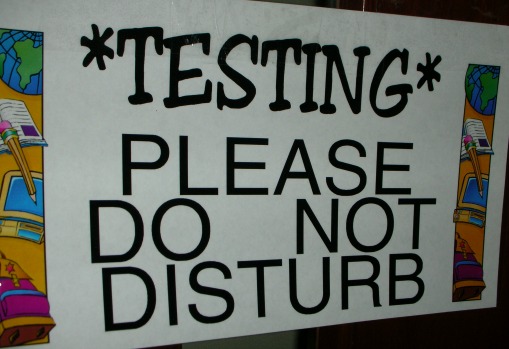|
|
How To Say No
When It's Needed
Learning how to say no can be difficult because we don’t want others to get upset or feel rejected but do you know that saying "no" in certain times and situations can give you personal benefits that you also need for yourself?
While some might think that saying no to others can damage relationships this is not what usually happens.
We can think negative things that can happen as other people react with our "no" response.
But if you check the outcome well it’s not always negative and it’s not usually the way you think it will be.
How to Say No and Why It Should be Used
When you say "no" to others you should make sure you do it with respect and care because you don’t want to hurt the feelings of others especially it’s a friend or someone close to you.
Yet you need to reject a request, a command or a persuasion because you have important reasons you need to give honor to like:
- You have many obligations to accomplish already and you need some time and personal space for yourself. You need a break too and you cannot overwork yourself too much. Work-life balance is important.
- There’s an important event or occasion when you’re being asked about something.
- It is against your beliefs, way of life and convictions.
- Your schedule is full already and there are also others asking for your favor.
- You have other priorities or opportunities you need to attend to.
Finding ways on how to say no can give you pressure on your part but you have to take courage and you have to do it one way or the other.
Otherwise, you’ll be forced to do something you don’t really want to do and you may get tied-up with a situation that is unfavorable to you.
Ways on How to Say "No" Properly
1. Do You Have Good Reasons?
In order to say "no" effectively in any form, you should know your reasons first. Why can’t you do it? How can you explain it to the person asking you of something?
If you have a good reason that is understandable and you can explain it well like:
"I have to visit my grandma at the hospital she’s expecting me to be there, she’s not doing well yet and she would feel better if I’ll be there tonight."
Then your reason is likely justified.
It would be best to tell the truth when you give your reasons because it’s easier to be firm with your "no" when it’s according to your convictions and you’ll be able to back it up well with information that is reliable.
2. The Right Timing is Important
Another way on how to say no is using the right timing. You shouldn’t get "off guard" by saying "yes" when someone suddenly asks you for something or when the person keeps on insisting at the moment.
You need to think first of your plans and schedules and you cannot suddenly commit to something you’re not really ready.
If you’re very busy you even have to apply some timesavers because you cannot get too overloaded with things to do, you also have to take care of your health.
Some people are suffering from sleep deprivation because they always have their "hands full" with obligations.
You can say to the person "I have to think about it first because I’m not really sure yet," or "I might be able to do it but there are things I still need to consider."
You shouldn’t say it straight that you refuse him/her but instead try to soften your tone.
Delay a little with your decision this way you can somehow make the person feel that it’s not easy for you to agree and go with the request.
This is part of how to say no without hurting feelings.
Don’t rush with your decision, you have to consider everything that will be affected such as your other activities, family, your mate, friends, events, deadlines, etc.
This is before you commit to a request from someone especially when the request is not simple. When you’re ready, do it at the right time with grace.
Find a time when the person is in a good mood like when after having a good meal or after having a good chat with someone because it will be easier for him/her to accept your refusal of a request.
Don’t do it when the person is currently busy, tired, frustrated or just had something bad happened. The person will just feel worse when you say it at the wrong time.
Say it like "I would like to help you and take on your request but..." then state your decision. Doing it with "softness" and on right timing would make your "no" excuse more acceptable to the person.
There would be less likely to have any conflict especially when you have good reasons.
3. Alternatives for Making It Up
Using techniques on how to say no can help you with getting things done. At work or at home it’s usually a priority to finish the tasks you have to complete.
Learning to say "no" can also be important at times when you need to improve your productivity at work.
There are times when you need to focus with the tasks you’re doing so you can finish much of them and you should avoid some distractions or diversions of your time and energy.
When you have to refuse a request or a favor being asked of you, you can give alternatives to make it up later on.
You can say for example "I would like to help you but I cannot do it now because I have to finish my research soon but if you want... I can help you on other things next week when I have more time."
Or instead you can add something the person you know he/she would appreciate like "...I can help you with cleaning your house next week instead."
You have to show the person that you care by being willing to make it up instead when you have the time.
This is like "compensation" if you’re willing to do it but if you don’t want to do this then you just have to refuse the person with your good reasons without giving alternatives.
This is one technique on how to say no which you can use if you want to give comfort to a person like your friend, family or boss if you’re being very careful with what they could think when you say "no" to them.
What Could a Person Think of You?
Since this is such a big concern why some people can’t say “no” because they don’t want to offend the feelings of others, here are more things you should consider.
Learning how to say no should be used when the situation calls for it and you shouldn’t always think of refusing or disagreeing as creating a negative effect with relationships.
What could other people be really thinking? Could they be thinking what you’re thinking about them when you say "no" to them?
Sometimes not they may understand you in a different way so you cannot really assume what a person may think.
If you can reason well and you know what to say then there’s no need to fear saying no to a request especially if you have something to do more worthy of your time.
When you explain it well the person should understand why you refuse and you can make up things with him/her later on.
The secret to this is your character if you’re someone who has a good reputation and known to be sincere with what you say and do. When you say "no" or refuse when you need it it’ll be most likely be accepted.
But when you’re known to be someone who used to lie a lot and make mischief over others then your "saying no" or refusal will be most likely be thought of as only for your "selfish interest" and as a mere excuse to avoid effort or trouble.
So it pays to be a good example to others and this is a good leadership characteristic that you can develop. The techniques of how to say no is also needed when you have to manage other people with their time.
Not having too many obligations and having a "balanced life" can lessen the stress you handle every day and you might also need some time for your interpersonal, sexual, social and relaxation life.
If you're using a weekly planner or a monthly planner these tools can help you with your decision making about activities with other people.
Having an "icebreaker" activity can be considered in your scheduling in order to lighten your condition during work which can reduce some stress.
It’s up to you how much things or tasks can you handle. Which obligations should you commit with and which ones can be set aside or postponed for later so you won’t get overloaded with things to do.
It takes wisdom and conviction when you learn how to say no and remember your priorities as you learn how to say no on different situations.
Go from How to Say No to Effective Time Management Strategies













